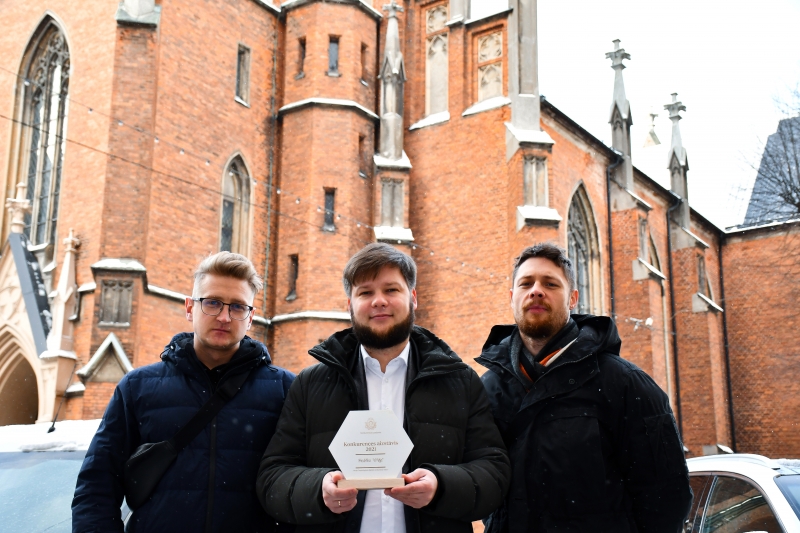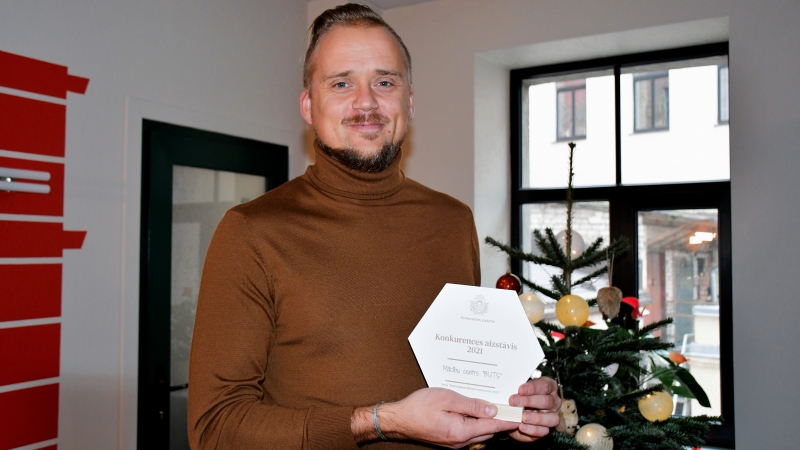The Competition Council (the CC), in cooperation with the Latvian Chamber of Commerce and Industry (LCCI), has selected and awarded three competition advocates or the participants of the campaign "The most absurd obstacle to competition - 2021” who have identified and indicated unjustified restrictions on competition arising from the activities of public administrative bodies – state and local municipalities, as well as capital companies owned by them.
Participants were asked to report unjustified restrictions on competition, such as creating advantages for capital companies directly or indirectly influenced by a public administrative body, the wording of rules or laws that favour one particular company as a result of which other market participants are forced to leave the market or which burden entering or operating on the market by the potential companies, as well as other actions of a public administrative body which make it difficult for companies to operate in the market.
The campaign received applications for possible barriers to competition in sectors such as manufacturing, energy, tourism, security, event management, finance and insurance, IT, etc. sectors.

One of the three titles, “Defender of the Competition 2021”, was awarded to the association “eMāja”, which pointed to possible obstacles in the future in the regulatory framework, which does not motivate private market participants to create innovative solutions in the field of apartment property management. The applicant referred in the application to the draft law “Amendments to the Apartment Property Law”, which envisages supplementing the functionality of the Construction Information System (CIS). The innovations impose an obligation to keep all decisions of apartment owners 'general meetings in the CIS, as well as amendments to the law contain references to the right of apartment owners to organize apartment owners' surveys, general meetings and decision-making electronically in the system using the CIS and the electronic signing tool. However, the draft law does not clearly indicate the rights and conditions based on which apartment owners could use other solutions offered by private market participants.

As a significant obstacle to competition, the evaluation committee also identified the application of Ltd. “BUTS”, which paid attention to the provisions of the regulatory framework of the education sector, which stipulates that private entrepreneurs can't obtain the status of the Vocational Education Competence Center. Accordingly, these companies have limited opportunities to receive financing from the European Union Structural Funds, as the Vocational Education Competence Center's status is mandatory to receive this funding. The Vocational Education Competence Center receives funding from the European Union's Structural Funds to establish and improve the technical base of infrastructure and training, using the infrastructure and technical base established accordingly and for the implementation of adult education and further education programs. Thus, by obtaining such financial advantages, the Vocational Education Competence Center can implement adult education programs at a much lower cost compared to educational institutions that implement adult education and further education programs without the funding of the European Union Structural Funds.

A representative of the publishing company “MicRec”, Guntars Račs, was also nominated as a “Defender of the Competition 2021”, who pointed out the problems in the cultural sector in the organization of events. Namely, private market participants are able to provide entertainment events, and there is no market failure in the market, but public administrative bodies and their capital companies, which have access to public funding, are often involved in the organization of events. The applicant also referred to the consideration that capital companies of public administrative bodies compete with private market participants for access to funding for the events from the State Culture Capital Foundation (SCCF). In addition, public funds are often attracted to ensure the operation of capital companies of public administrative bodies, therefore it is difficult for private market participants to compete with the price offers of capital companies of public administrative bodies. This obstacle was also raised by other cultural and event industry representatives.
Juris Gaiķis, the chairman of the CC: “Public administrative bodies and their capital companies have a special responsibility to ensure that their activities do not create restrictions on fair and equal competition. The most common problem is discrimination against individual market participants, providing more favourable conditions for state or municipal companies, thus disregarding the principles of fair competition and good governance. Such unfair practices by public entities can lead to the foreclosure of private companies, prevent the development of existing ones and the entry of new ones into the market, limiting consumer choice, and leading to unjustified price increases. Since 2020, the Competition Council has stepped up its monitoring of public administrative bodies, responding more frequently to specific complaints. We cannot track all procurements organized by public administrative bodies or changes in regulations, such as binding regulations of local governments, which may discriminate against private market players, therefore we highly value the involvement of the public and reporting of possible violations. They can be reported to the Competition Council not only within the campaign, but also on a daily basis, by writing an application or using the anonymous reporting form available on the website www.kp.gov.lv. ”
Most of the obstacles submitted to the campaign highlighted the involvement of public administrative bodies and their capital companies in the provision of services in the field of culture and tourism and other areas. Public administrative bodies and their companies should refrain from engaging in the provision of services that can be provided on an equal footing by private market participants, involving them as far as possible in the provision of services.
Entrepreneurs, non-governmental organizations, state and local government institutions, law offices, as well as any interested party who has observed or encountered obstacles created by public administrative bodies that unreasonably hinder or restrict competition or economic development could participate in the campaign.


